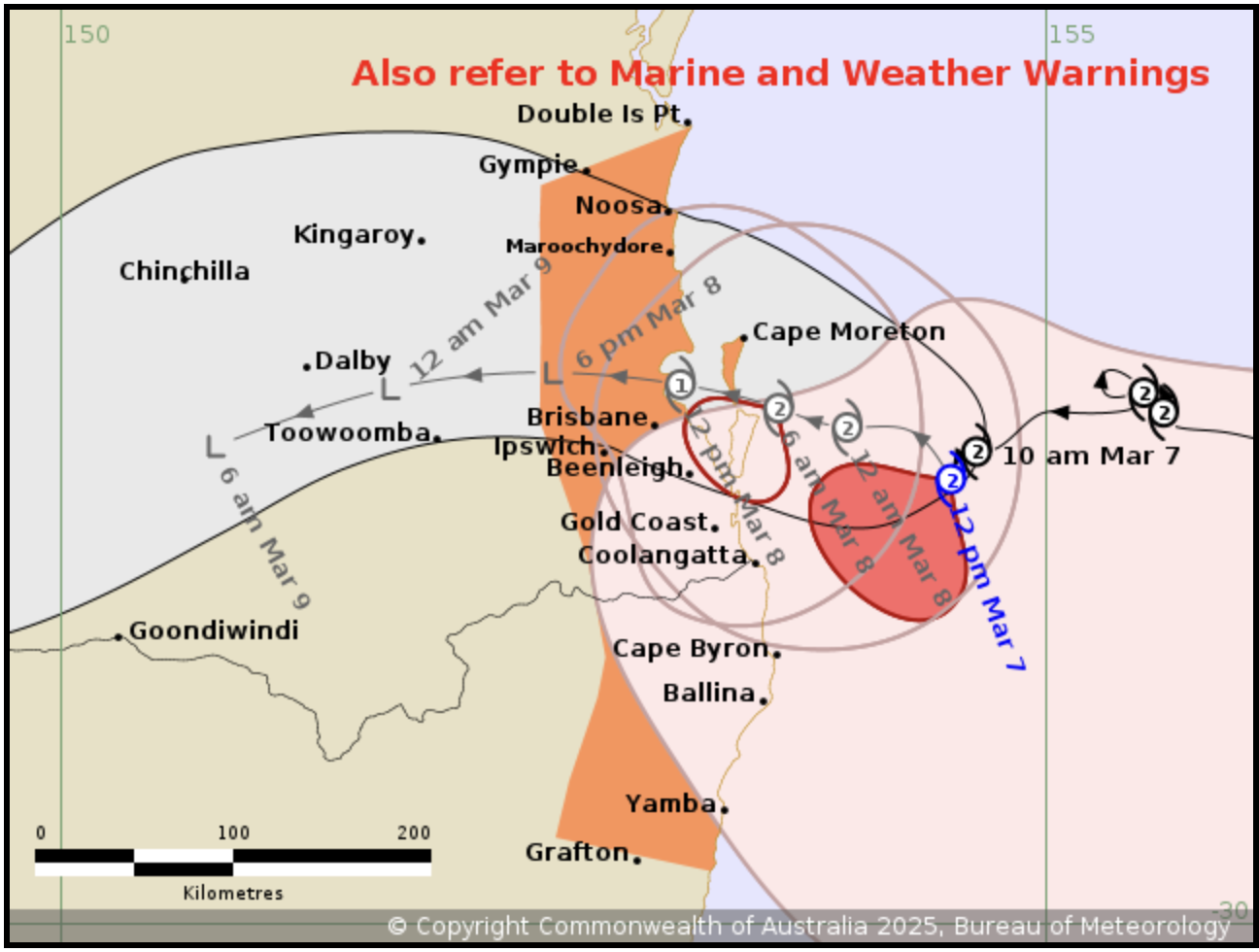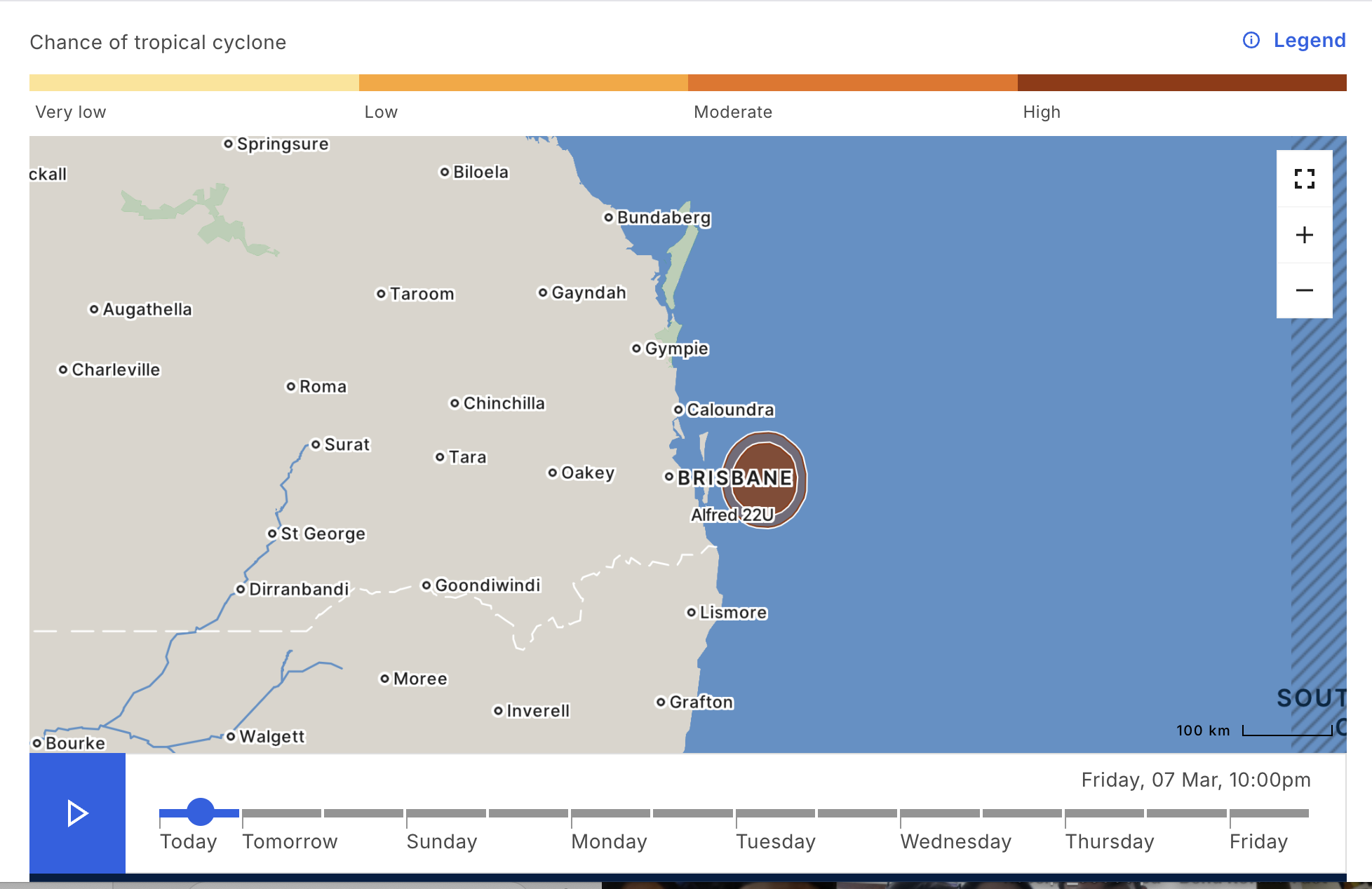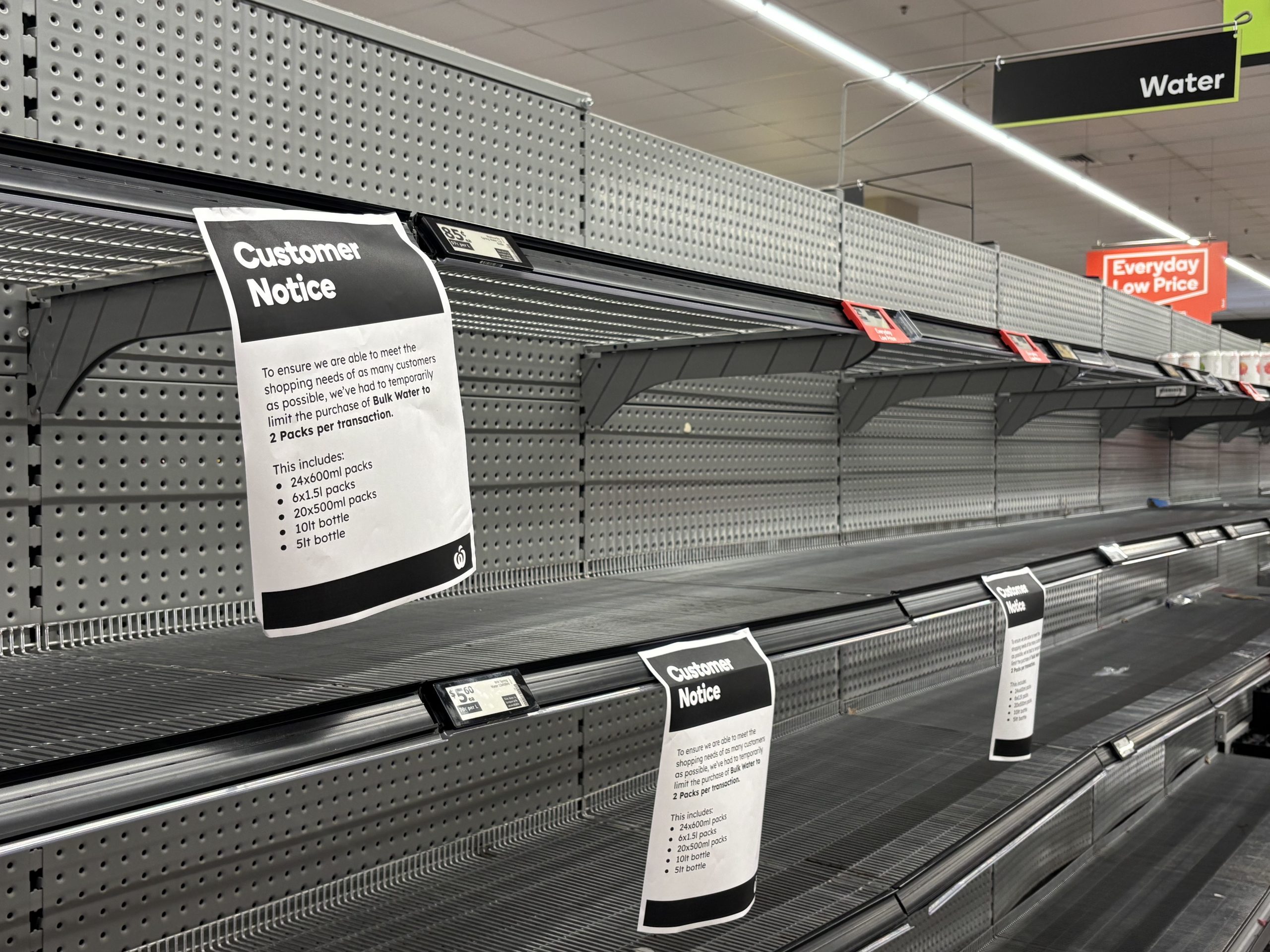Tropical Cyclone Alfred, South East Queensland’s first tropical cyclone in 50 years, is predicted to make landfall on Australia’s eastern coast with dangerous winds and heavy rainfall on Friday night or Saturday morning.
The more than 2.5 million people in Brisbane may experience winds of up to 120 kilometres per hour and up to 200 millimetres of rain by Saturday, according to the Bureau of Meteorology,
As of Thursday, BOM stated that Alfred was still over 200 kilometres east of Brisbane, but may bring damaging storm tides and major flooding when its centre crosses the coast on early Saturday.
Alfred is the first cyclone to hit the region since Cyclone Zoe in 1974, less than two months after Cyclone Wanda flooded 13,500 homes.

Cyclone Alfred, a category 2 cyclone, has winds with an average maximum speed of 89 to 117 kilometres per hour,
A category 2 cyclone is destructive enough to damage infrastructures, cause power outages, and uproot trees, said Xiaocheng Yu, a climate science researcher at the University of Queensland.

“Due to its stable circulation pattern, Alfred is expected to stall near Brisbane, increasing the risk of intense and prolonged rainfall,” she said.
She mentioned that intense rainfall could lead to flooding, especially in Brisbane, where a river runs through it.
“Tropical cyclones are small-scale, high-variability systems, making accurate predictions challenging,” she added.
She encourages the public to stay indoors and take precautions to protect their homes and garages from flooding.
Brisbane resident Taneen Estah, 19, said she is concerned. “I’ve never experienced one. Nobody in my family knew until yesterday. We live on a hill, so we might not experience flooding, although we may be stuck at home for a few days,” she said.
Estah said she struggled to stock up on necessities due to panic-buying at supermarkets.
“We were unable to buy water, eggs, meat and many more. The queue took over 10 minutes to check out our groceries,” she said.

The Queensland government declared a 24-hour re-supply in supermarkets, shops and warehouses ahead of the cyclone.
Local governments are also closing schools and public transport, and providing emergency services to areas prone to flooding.
Manzila Alimujiang, a student at the University of Queensland, said she was only able to stock up on fruits, frozen foods and instant noodle packets on Wednesday.
She is also worried about her finances after her work shift had been cancelled because of the cyclone.
“I get paid by the hour,” she said. “With work cancelled for the whole weekend, I’m worried I won’t be able to pay rent next week.”
She added that she may not work for weeks as her workplace has a high flooding risk.
“I hope it’s not as bad as they’ve expected it to be, and everything can go back to normal again,” she said.
《The Young Reporter》
The Young Reporter (TYR) started as a newspaper in 1969. Today, it is published across multiple media platforms and updated constantly to bring the latest news and analyses to its readers.

Special-forces mainland travellers are changing the Hong Kong tourism industry

Folk ritual that gets rid of pests and stress




Comments